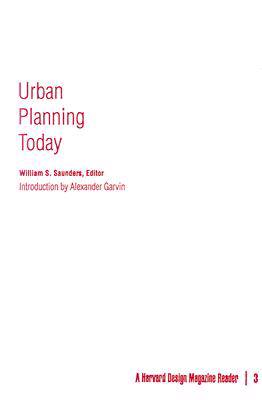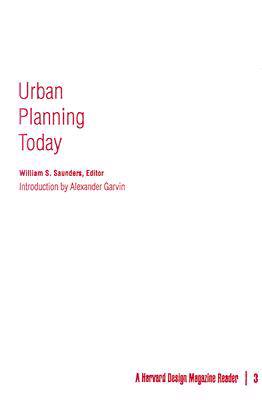
- Afhalen na 1 uur in een winkel met voorraad
- Gratis thuislevering in België vanaf € 30
- Ruim aanbod met 7 miljoen producten
- Afhalen na 1 uur in een winkel met voorraad
- Gratis thuislevering in België vanaf € 30
- Ruim aanbod met 7 miljoen producten
Zoeken
€ 79,95
+ 159 punten
Uitvoering
Omschrijving
American cities' penchants for single-use zoning and free-market development in pursuit of economic growth have produced problems that have long been recognized: grueling commutes and dependency on automobiles, social isolation, expensive public infrastructure, needless destruction of countryside. Eminent domain disputes rage on, despite recent Supreme Court decisions. Outdated public housing and failed single-function projects litter the landscape.Addressing these urgent problems and debating the public's role in urban planning, the contributors to Urban Planning Today report on real projects in Atlanta, Boston, Chicago, New York, Omaha, Portland, and Vancouver. They bring varying, and sometimes divergent, perspectives from backgrounds in urban design and development, city and regional planning, criticism, and law to bear on the mixed bag of results observed in these cities. Noting the increasing influence of local nonprofit developers--such as Bridge Housing in San Francisco and Phipps Houses Group, Community Preservation Corporation, and NYC2012 in New York--as well as national organizations, the contributors also imagine clear and effective roles for government leaders. By creating a dialogue of cities' planning successes and failures, this book illustrates that adopting a single model universally will not work and that effective planning must indisputably demonstrate that any public action and private market reaction will be in the local community's interest--physically, functionally, financially, politically, aesthetically, and spiritually.Contributors: Jonathan Barnett, Lynn Becker, Peter Calthorpe, Susan Fainstein, Bent Flyvbjerg, John Kaliski, Jerold Kayden, Matthew J. Kiefer, Hubert Murray, Richard Plunz, Leonie Sandercock, Michael Sheridan. William S. Saunders is editor of Harvard Design Magazine and the books Commodification and Spectacle in Architecture and Sprawl and Suburbia, both from Minnesota. He is assistant dean for external relations at the Harvard Design School, and author of Modern Architecture: Photographs by Ezra Stoller.Alexander Garvin is president and CEO of Alex Garvin & Associates Inc. and adjunct professor of urban planning and management at Yale University.
Specificaties
Betrokkenen
- Auteur(s):
- Uitgeverij:
Inhoud
- Aantal bladzijden:
- 151
- Taal:
- Engels
- Reeks:
- Reeksnummer:
- nr. 3
Eigenschappen
- Productcode (EAN):
- 9780816647569
- Verschijningsdatum:
- 1/06/2006
- Uitvoering:
- Hardcover
- Formaat:
- Ongenaaid / garenloos gebonden
- Afmetingen:
- 154 mm x 236 mm
- Gewicht:
- 353 g

Alleen bij Standaard Boekhandel
+ 159 punten op je klantenkaart van Standaard Boekhandel
Beoordelingen
We publiceren alleen reviews die voldoen aan de voorwaarden voor reviews. Bekijk onze voorwaarden voor reviews.












